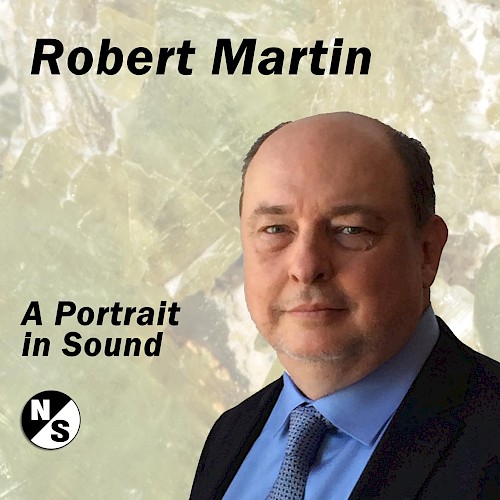Cello in the Universe
- Year
- 2001
- Duration
- 10:00
- Category
- Solo
- Instrumentation
- vc
- Location
- Manhattan, New York
- Dedication
- to Matt Goeke
- Purchase
- Theodore Presser
Description
Cello in the Universe is a composition for violoncello solo in four movements. I conceived of this piece in a curious way--I experienced a dream. It was a dream of solo cello music that was unattached to our comprehension of time and space. In my dream, the music was coming from a cello floating in space. Perhaps at one time it was attached to a satellite, or a space station, but by accident it came unfastened from its lifeline-tether and began to drift forever through the universe. Of course, music cannot be heard in space. There is no air to transmit the vibrations to our eardrums. Nevertheless, I sketched down the idea and worked it out over the course of several months. The piece was composed in the summer of 2001 in Manhattan, New York. The premiere took place by the extraordinary cellist, Matt Goeke, at a concert of the Glass Farm Ensemble, on June 13 th, 2010, at the Baryshnikov Arts Center in Manhattan, New York.
Fanfare Review - Peter Burwasser
MARTIN Chrysolith. String Trio. Emerson Songs1. Two Ancient Pieces. Piano Trio. Affirmation. Cello in the Universe. Only When the Clock Stops • Max Lifchitz, cond; Morth/South Consonance Ens.; Max Lifchitz (pn); 1Sandra Moon (sop) • NORTH/SOUTH RECORDINGS N/S R 1070 (79:21)
Robert Martin belongs to that class of American composers who received formal musical education but opted for a professional career with greater financial stability, in the manner of Charles Ives and John Alden Carpenter. Ives, of course, worked in the insurance industry (and not casually; he was an innovator in the field) and Carpenter joined his family’s prosperous shipping supply company in Chicago. Martin spent his career on Wall Street, where he eventually became a vice president of investment banking at a major firm. He certainly began his journey into the world of music with great promise, earning bachelor’s and master’s degrees from Peabody, after which he earned a Fulbright Scholarship that took him to Vienna and several other old world artistic centers. He returned to music upon retirement, although based on the dates of the compositions listed on this program, it seems as if he never completely left the artform.
Martin’s music is very much of his time. He was born in 1952 in Maryland, and so assuming no gap years, that would put him in undergraduate studies some time in the late 1960’s. The academic musical world then still revolved around serial and post-serial compositional techniques, although there were cracks beginning to occur around the orthodoxy, with an especially strong blow delivered by George Rochberg, a leading serialist composer, with his partially tonal String Quartet No. 3 in 1972. The opening work on this omnibus, Chrysolith, from 1977, reflects these winds of change. While the harmonic language is challenging, it is at the service of what might be called modern Impressionism, as the trio of alto flute, viola and harp is an ode to nature, glittery gemstones and fall leaves, in particular. The three movement String Trios (the first is from 1976, the second from 2008) are similarly atmospheric, and are intensified by strong expressionistic impulses, as well as a fascinating textural complexity. Not surprisingly, given the 32 year gap between them, the youthful vigor of the earlier trio is distilled and focused in the later iteration of the form. The three pieces for solo instruments, Two Ancient Pieces for piano, Affirmation for viola, and Cello in the Universe, for cello (of course!) are more inward looking than the ensemble works, in their different ways, especially the cello music, which Martin says came to him in a dream. Only When the Clock Stops, which takes its title from a chapter from William Faulkner’s The Sound and the Fury, is in four short movements for solo percussionist. It is a quirky and utterly charming tour-de-force, scored for marimba, vibraphone, five timbales, xylophone, glockenspiel Chinese gong, four octobons and a conga. But not all at once.
The songs settings of excerpts from essays by Ralph Waldo Emerson are unusual, if not rather odd. Good prose, like good music, is informed by a perceivable meter, which, in the tradition of great song writing of the past, flows into the rhythm of the musical composition. That quality is not readily apparent here. Perhaps Martin is not interested in traditional song structure, but the effect is jarring, and Sandra Moon, a highly acclaimed and personable artist, seems to struggle somewhat with the difficult structural lines of the songs. They are a minor disappointment on an otherwise invigorating collection of good old modernist music. The North/South Consonance Ensemble, under the venerable direction of Max Lifchitz, once again demonstrates their superb advocacy of the music of our time. Peter Burwasser4 Stars: An omnibus of the modernist music of a contemporary American composer.
Cello in the Universe in the News
- Nov 12, 2024
New Album “A Portrait in Sound”
- Nov 12, 2024
Past Performances of Cello in the Universe
| Date/Time | Location | Artist/Players |
|---|---|---|
| 2010-06-13, 6:00 PM | Baryshnikov Arts Center, New York, NY USA | Matthew Goeke, The Glass Farm Ensemble |
